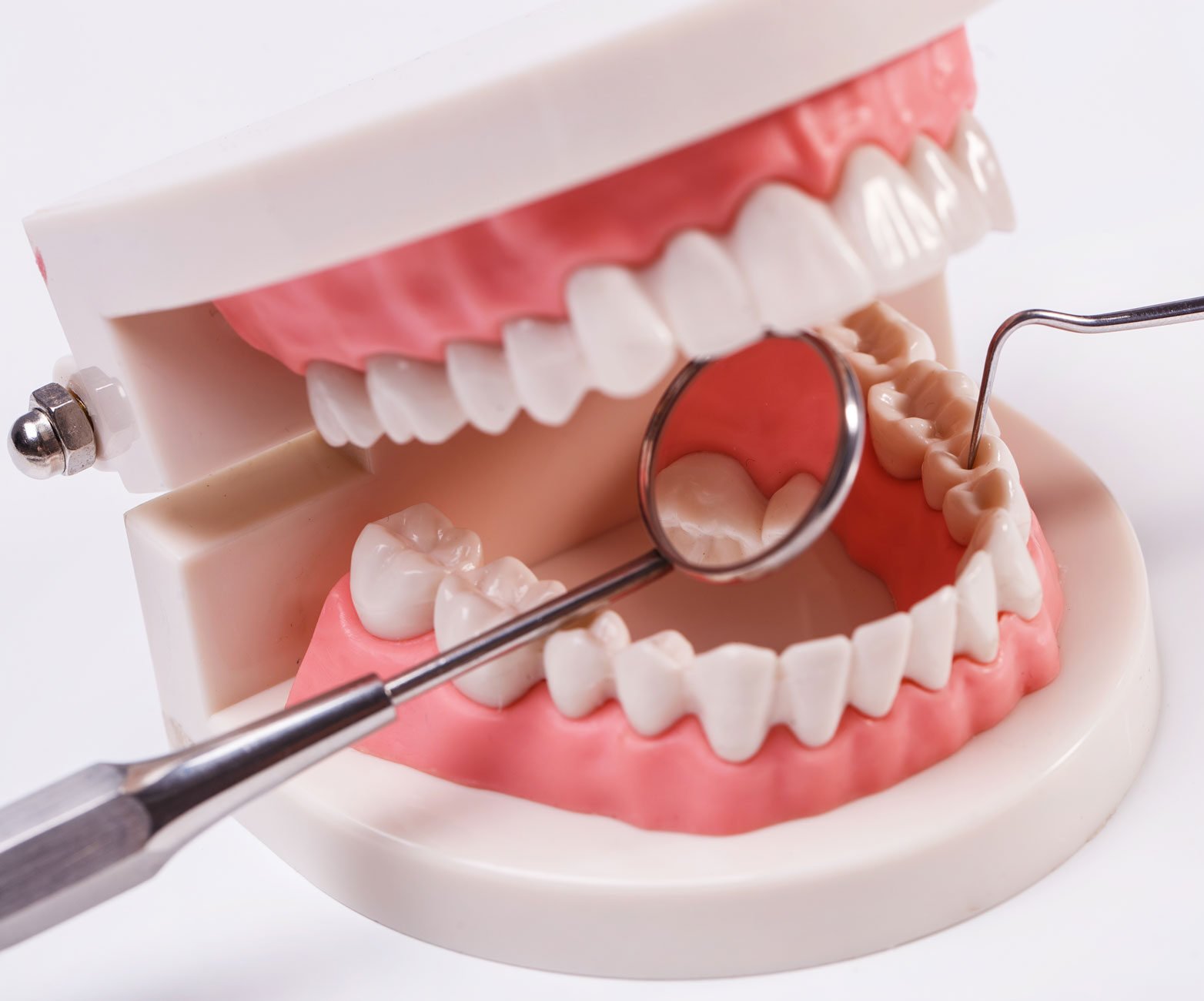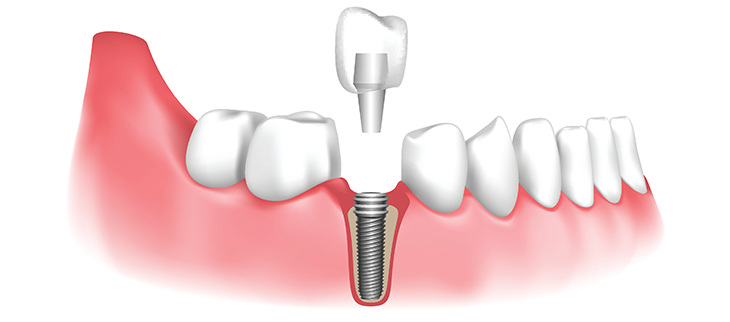Dental Implants vs. Dentures: Which is the Better Option? Are you wondering which option is better for replacing missing teeth, dental implants or dentures? Both options come with their own set of advantages and drawbacks. In this article, we’ll compare the two options so you can make an informed decision on which one is right for you.
Comparing the benefits and drawbacks: dentures vs. dental implants
Dentures vs. Dental Implants: both options have benefits and drawbacks. Traditional dentures are less expensive, but they are not as stable as dental implants. Furthermore, dentures may cause discomfort and slip out of place, leading to embarrassment. In contrast, dental implants offer a durable solution, with a success rate exceeding 95%. Additionally, dental implants look and function like natural teeth. However, they are more expensive than traditional dentures, and the implantation process is more invasive. Patients need to have healthy gums and sufficient jawbone density in order to qualify for dental implants. Overall, the decision between dentures and dental implants depends on the patient’s needs and personal preferences.
Which lasts longer, dentures or implants?
Dental implants last longer than dentures. While dentures typically need to be replaced every 5-7 years, dental implants can last a lifetime with proper care and maintenance. The reason for this is that implants are surgically placed into the jawbone, where they fuse with the bone and become a permanent part of your smile. Dentures, on the other hand, sit on top of the gums and rely on suction and adhesive to stay in place, which can cause them to shift or become loose over time. Additionally, dentures can cause bone loss in the jaw due to lack of stimulation, which can lead to further oral health problems. Dental implants, however, stimulate the jawbone, preventing bone loss and preserving the health of your smile in the long term.
What are the advantages of choosing dental implants instead of dentures?
Dental implants offer several advantages over dentures:
1. Natural look and feel: Implants are designed to look, feel and function like your natural teeth. They blend seamlessly with your existing teeth and can restore your smile to its former glory.
2. Better oral health: Unlike dentures, which can lead to bone loss and gum recession, implants help preserve your natural bone and keep your gums healthy. They also make it easier to maintain good oral hygiene, as you can brush and floss them just like you would with natural teeth.
3. Long-term solution: While dentures need to be replaced every 5-7 years, implants can last a lifetime with proper care. This makes them a more cost-effective and convenient option in the long run.
4. Improved speech: Dentures can slip or make clicking noises, making it difficult to speak clearly. Implants are firmly anchored in your jawbone, so you can speak with confidence and clarity.
5. Better eating habits: With dentures, you may have to avoid certain foods that are difficult to chew. Implants function just like natural teeth, allowing you to enjoy all of your favorite foods without any restrictions.
Overall, dental implants are a superior option for those looking to restore their smile, maintain their oral health and enjoy a natural-looking, long-lasting solution for missing teeth.
What are the advantages of choosing dental implants instead of dentures?
Dental implants offer several advantages over dentures. Firstly, they are a more permanent solution as they are surgically implanted into the jawbone, providing a solid foundation for replacement teeth. Dentures, on the other hand, may slip or shift in the mouth, leading to discomfort and difficulty with eating and speaking.
Another advantage of dental implants is that they look and feel like natural teeth. Unlike dentures, they don’t require messy adhesives or special cleaning routines. Dental implants can also improve overall oral health by preventing bone loss in the jaw and reducing the risk of gum disease.
Additionally, dental implants offer greater convenience and freedom compared to dentures. With implants, there are no restrictions on the foods you can eat and no need to remove them for cleaning or sleeping. This makes everyday activities much easier and improves the quality of life for those who choose this option.
Overall, while dentures may be suitable for some patients, the many benefits of dental implants make them a superior choice for most people looking to replace missing or damaged teeth.
Is keeping your natural teeth better than getting dental implants?
Dental implants are a highly effective and popular option for replacing missing or damaged teeth. While keeping your natural teeth is always the preferred option, it’s not always possible or practical. Dental implants can offer many benefits over keeping your natural teeth, including increased durability, improved appearance, and better overall oral health.
When a tooth is lost or severely damaged, it can lead to a range of problems, such as bone loss, shifting of other teeth, and difficulty speaking or eating. Dental implants provide a long-lasting and natural-looking solution that helps to maintain the structure and health of your mouth.
While there are some risks associated with dental implants, such as infection or nerve damage, these are rare and can be minimized with proper care and maintenance. In most cases, dental implants are a safe and effective way to restore your smile and improve your oral health.
Ultimately, the decision between keeping your natural teeth or getting dental implants will depend on a variety of factors, including your overall health, the severity of your dental problems, and your personal preferences. If you’re considering dental implants, it’s important to talk to your dentist or oral surgeon to determine if they’re the right choice for you.
Frequent Questions
What are the advantages and disadvantages of getting dentures versus dental implants?
Dentures are removable dental prosthetics that can replace multiple missing teeth or an entire arch. On the other hand, dental implants are artificial tooth roots surgically placed into the jawbone to support a crown, bridge or denture.
Advantages of dentures: Dentures are a good option for people who cannot undergo surgery or do not have enough bone density to support dental implants. They are also more affordable than dental implants.
Disadvantages of dentures: Dentures can be uncomfortable and may require frequent adjustments. They can slip and move around while eating or speaking, which can cause embarrassment. Over time, dentures can accelerate bone loss in the jawbone, which can lead to further tooth loss and facial changes.
Advantages of dental implants: Dental implants offer better stability and functionality than dentures. They look and feel like natural teeth and can prevent bone loss in the jaw. Dental implants are also more durable and can last a lifetime with proper care.
Disadvantages of dental implants: Dental implants require surgery and may not be suitable for everyone. They are also more expensive than dentures and may not be covered by insurance. The implant process can take several months to complete and requires multiple appointments.
How long do dental implants typically last compared to dentures?
Dental implants typically last much longer than dentures. In fact, with proper care and maintenance, dental implants can last a lifetime. On the other hand, dentures typically need to be replaced every 5-10 years, as they can become worn, ill-fitting, or discolored over time. Additionally, dentures often require regular adjustments and repairs, while dental implants function more like natural teeth and do not require any special maintenance beyond good oral hygiene practices. Overall, dental implants are generally considered to be a more durable and long-lasting option for tooth replacement than dentures.
What factors should be considered when choosing between dentures and dental implants, such as cost, comfort, and maintenance?
When choosing between dentures and dental implants, several factors should be considered:
Cost: Dentures are generally less expensive than dental implants. However, over time, denture wearers may need to have them refitted or replaced as the shape of the gums changes due to bone loss. Dental implants may have a higher upfront cost, but they are permanent and can last a lifetime with proper care.
Comfort: Dental implants are more comfortable than dentures as they function like natural teeth and do not slip or move around in the mouth. Dentures may cause sore spots or discomfort due to their removable nature.
Maintenance: Dental implants require routine care, including brushing and flossing, like natural teeth. Dentures require cleaning and maintenance, including soaking them in a special solution overnight.
Bone health: Dental implants can help preserve bone health by stimulating bone growth in the jaw. Dentures do not have this same effect and can lead to bone loss over time.
Overall, while dentures may be a more cost-effective option initially, dental implants offer greater comfort, easier maintenance, and better long-term oral health benefits.
Conclusion: Although both dentures and dental implants have their advantages and disadvantages, it is clear that dental implants offer a more natural and long-lasting solution for missing teeth. Not only do they look and feel like real teeth, but they also help to prevent bone loss in the jaw and do not need to be replaced as frequently as dentures. While dentures may be a more affordable option in the short-term, investing in dental implants can save you money and discomfort in the long run. If you are missing one or more teeth, talk to your dentist about whether dental implants might be the right choice for you.



